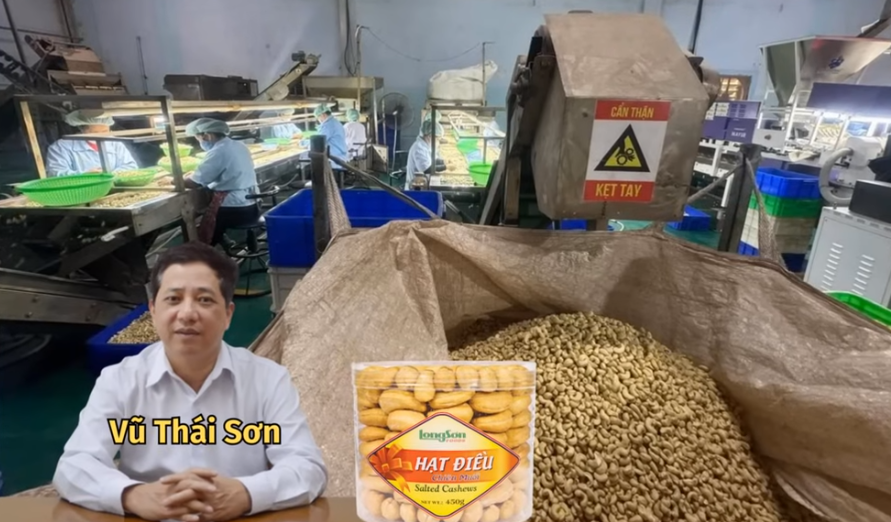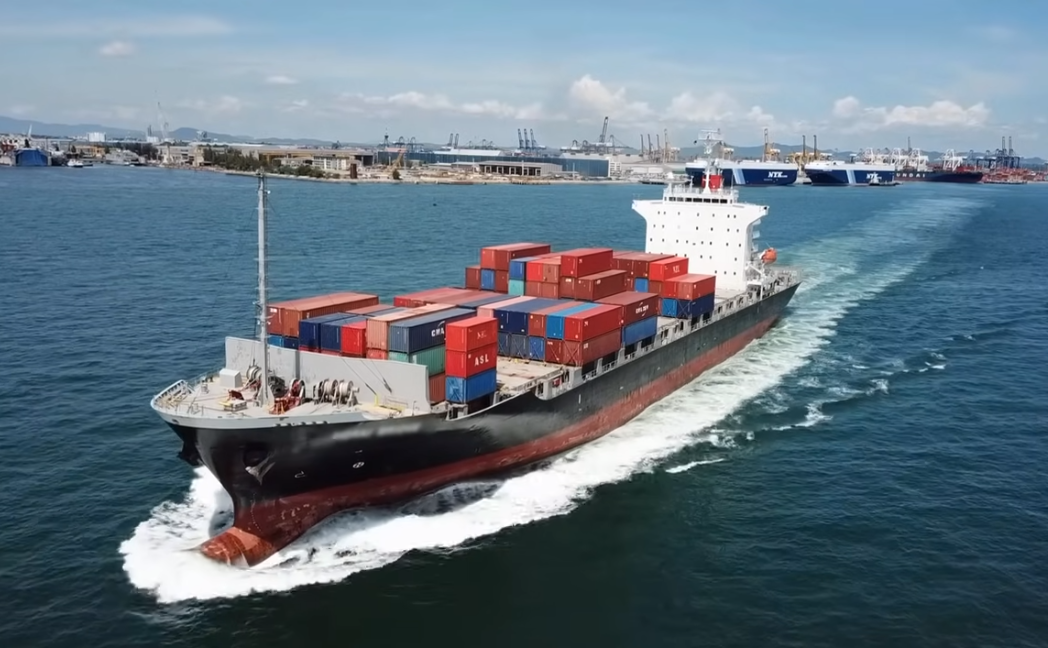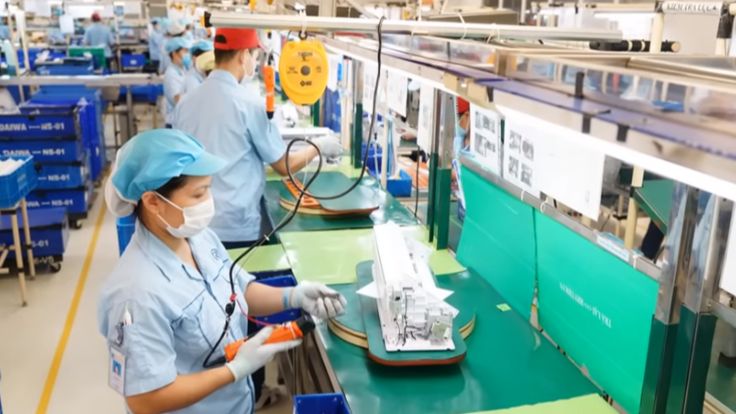From Dubai - the holy land of global trade to Singapore - the "paradise" of startups, what is the reason that Vietnamese businesses do not want to stay at home? This article will reveal the overall picture of the wave of foreign investment by Vietnamese enterprises, while analyzing the motivations and consequences surrounding this trend.
An inevitable trend to maintain competitive advantage
In the context of domestic production and processing facing many challenges, especially the lack of competitiveness due to limitations in local raw materials and rising labor costs. Some Vietnamese enterprises have proactively sought opportunities in countries with more competitive advantages, despite the geographical distance and potential difficulties of this trend. This is particularly evident in the agricultural processing industry, exemplified by companies engaged in exporting processed cashew nuts. A typical example is Long Son Company, a large cashew processing enterprise in Vietnam, which is investing in building a production facility in Côte d'Ivoire.

This multi-million dollar project has been implemented since last year and is expected to be operational in the coming months. This is one of the few Vietnamese enterprises that dares to boldly invest in a distant country on the African continent to develop processing and production activities. Mr. Vu Thai Son, General Director of Long Son Company, shared that "the business activities of his company in particular and cashew enterprises in general have faced many difficulties over the past three years, even incurring losses, primarily due to the shortage of local raw materials, forcing enterprises to import about 75 to 80% of the materials for processing. This has led to a situation where enterprises compete with each other to buy raw cashew nuts at high prices, and then continue to compete to sell products at low prices to quickly recover capital and limit financial capacity."
This situation of competing to buy and sell has caused Vietnamese cashew exporters to undermine each other, creating opportunities for importers to push prices down. Recognizing these disadvantages, Long Son Company decided to invest in a factory in Côte d'Ivoire, a major supplier of cashew raw materials to Vietnam, to enhance its competitive advantage. According to Mr. Son, Vietnam currently leads the world in cashew nut exports and possesses advanced cashew processing technology, even as African countries are ramping up their processing activities, they still cannot match Vietnam.
Therefore, investing in a factory and processing production right at the raw material region will provide a significant competitive advantage for the company compared to importing raw materials to Vietnam for processing and then exporting. This trend is also noted in African countries, where a business representative from a Nigerian cashew company stated that this company has imported production lines from Vietnam to process cashews and currently has finished products exported to Europe at lower prices than products from Vietnam. Although the number of similar factories in Africa is still limited, the trend of expanding production in raw material regions is increasingly rising due to advantages in lower costs and reduced transportation expenses.
The textile and garment industry, which has been a strength of Vietnamese enterprises for many years, is also facing the risk of losing its advantage in cheap labor. To maintain competitiveness, some enterprises have sought to expand production abroad. A typical example is Song Hong Garment Joint Stock Company, which recently announced plans to invest in Egypt at its annual general meeting. The goal of Song Hong Garment is to take advantage of the low labor costs and Egypt's tax exemption policy for exports to the US. The leadership of Song Hong Garment stated that investing in Egypt will help the company significantly reduce costs, thereby increasing its competitive advantage in the market.
Specifically, labor costs in Egypt are currently much lower than in Vietnam. In addition, Egypt's free trade agreements allow goods produced in this country to be exempt from 100% tax when exported to the US, while the shipping time by sea to Europe and the US is also significantly shorter compared to departing from Vietnam. If this plan is realized, Song Hong Garment will become one of the few Vietnamese textile and garment enterprises to invest abroad, especially in a distant country like Egypt. In summary, seeking and investing in countries with more competitive advantages is becoming an inevitable trend for Vietnamese enterprises in the context of increasingly deep international economic integration. This trend not only helps enterprises maintain their competitive advantage but also contributes to enhancing Vietnam's position on the international stage. The story of Vietnamese enterprises investing abroad is not new.

In recent years, most enterprises when investing in a country or region often focus on exploiting the market right in that country or region. However, the investment trend of Vietnamese enterprises is showing an expansion to more distant countries instead of just focusing on exploiting the local market; these enterprises are leveraging the advantages of countries with raw materials and low labor costs to enhance their competitive advantage in production and export activities.
Establishing companies abroad to seek advantages

The trend of Vietnamese enterprises investing abroad is becoming increasingly evident, especially in the Middle East, which has long been considered a challenging investment environment. According to Mr. Mohammed Ali Rashed Lootah, president of the Dubai International Chamber of Commerce, ten years ago, only 14 Vietnamese enterprises registered as members of the Dubai Chamber. By July 2023, this number has increased to 89 enterprises, especially since the Dubai Chamber office was inaugurated in July last year, the number of Vietnamese enterprises entering the Dubai market has rapidly increased.
As of the first quarter of 2024, there are 147 Vietnamese enterprises registered as members of the Dubai Chamber and have received benefits from comprehensive business support service initiatives. The growth is not only reflected in the number of enterprises but also in the increasingly diverse range of professions. Currently, Vietnamese enterprises operating in Dubai are engaged in various fields such as product processing, coffee, textiles, finance, and software. Expanding business in Dubai not only helps Vietnamese enterprises tap into the local market but also serves as a gateway to the world.
Ms. Le Hoang Diep Thao, CEO of Trung Nguyen International King Coffee, shared her experience from opening a trade promotion representative office in Dubai. Previously, Dubai was a very good gateway to the world; enterprises from 198 countries are exempt from taxes and receive government support for investment procedures. Mr. Salem Al Shamsi, global vice president of the Dubai Chamber, also agrees that doing business in Dubai creates significant advantages for enterprises, thanks to easy global connectivity and being a country with tax incentives. In addition to seeking opportunities in potential markets like Dubai, some Vietnamese startups have decided to go abroad to establish additional companies or startups by forming legal entities overseas due to the perception of less competitive tax policies and an incomplete legal framework at home.
The wave of establishing legal entities abroad is largely comprised of e-commerce technology startups. According to one startup's sharing, the process of establishing a company in Singapore is very simple and quick, as a foreign enterprise only takes two days and a minimum capital of 1 US dollar to obtain an operating license with many incentives such as simple company formation procedures, tax exemptions in the first few years, and support for foreign enterprises to establish companies in the local startup ecosystem, enhancing opportunities for fundraising and easier global outreach. Singapore is becoming a stopover for foreign startups, including young Vietnamese from Vietnam.

Many startups, in one way or another, are establishing companies in Singapore, but the core team is still based in Vietnam. In reality, there are still some sectors that are not open to foreign investors or have restrictions on ownership ratios, and delays in policies have caused some startups to leave Vietnam. Startups believe they must go to other countries like Singapore to register their businesses to receive foreign investment. The less competitive tax policies also lead Vietnamese enterprises to circumvent laws by opening additional companies abroad. Recently, the Vietnam Chamber of Commerce and Industry (VCCI) reflected that many Vietnamese enterprises are establishing additional companies abroad to provide services to customers to reduce tax obligations.
Specifically, when commenting on the amended value-added tax (VAT) law, VCCI stated that under current regulations, services exported through the internet, digital content production, and electronic applications are entitled to a 0% VAT. However, many enterprises reported that they are still subject to a 10% tax due to the unclear distinction between domestic consumption services and exports. According to VCCI, enterprises have provided the tax authorities with much information, such as data from intermediary platforms like Google, Apple, IP, bank payment users, email contracts, and even some entities have had to separate products into two versions for the domestic and foreign markets but still have not been accepted by the tax authorities. Many individuals and enterprises are establishing additional companies abroad to provide services to customers worldwide to reduce tax obligations, VCCI reported.
